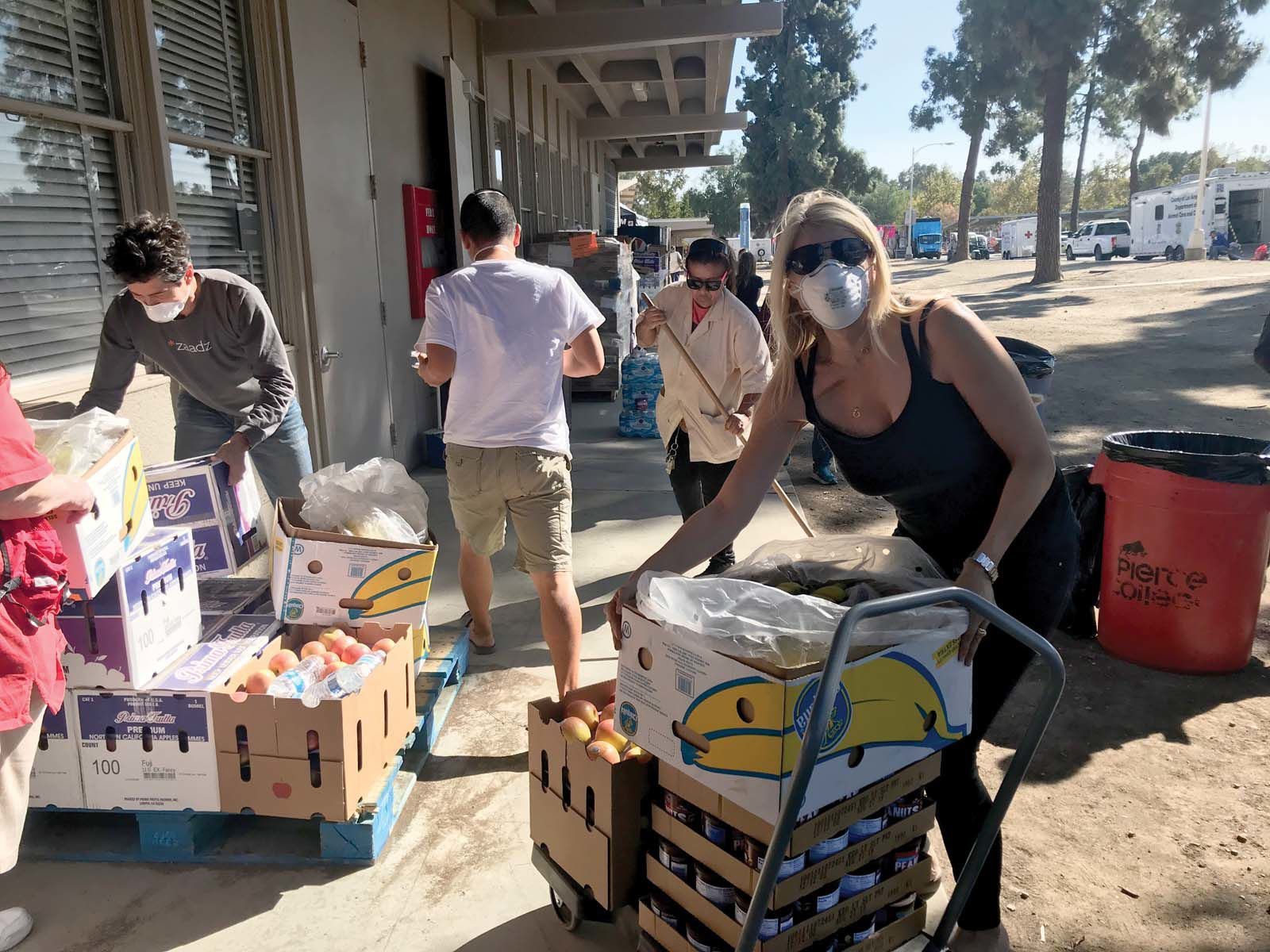
The City of Malibu kicked off National Preparedness Month Tuesday evening, Sept. 1, with a virtual presentation by the American Red Cross. In addition to its perennial blood drives, the Red Cross is mostly known for setting up and managing large community shelters during major disasters. Malibu has had a few of those, and city officials want to afford residents opportunities for information from the experts.
Alyssa Christenson, the Red Cross’ disaster program manager serving western Los Angeles, presented a host of tips to get ready for the next emergency, including this novel idea: Take copies of important papers and store them in a plastic bag inside your freezer. She said after a fire, freezers are sometimes left fairly intact. The disaster expert also went over the usual drill about making a plan and packing an emergency bag.
One reason to be at the ready is the advice the nonprofit emphasizes: In a disaster or emergency, you should not count on receiving help right away. If a large earthquake happens, for instance, you could be stuck at home for possibly more than a week. The Red Cross advises: “Be prepared to help yourself, your family, your neighbors and older adults.” It’s always good to have an emergency kit with water (a gallon a day per person), canned goods, a can opener, a flashlight, batteries, sturdy shoes, a radio, cash, a first aid kit, medications, toilet paper and, don’t forget, masks.
The Red Cross suggested different types of bags to pack for different situations such as an under-the-bed quick kit in case of an earthquake, equipped with sturdy shoes, a flashlight, reading glasses and a whistle. Larger emergency bins filled with food, water and other essentials can be stored in your home for other emergencies.
As a “second responder” to disasters, the Red Cross is often called for individual house fires. The service responds after a city or entity such as the fire department, police or county makes contact. Community shelters during a major disaster are its specialty. But in the time of COVID-19, any sheltering will look a little different to comply with social distancing.
“Before, we didn’t have to worry about the capacity of a building. Now, we have temporary evacuation points using more open space. We’re trying to keep people outdoors as much as possible to minimize the recirculation of air,” Christenson explained. If a congregate shelter doesn’t work, the nonprofit said it would look into providing hotel rooms to shelter victims overnight.
“If it’s a large enough event, the availability of hotels or motels may be maxed out,” the disaster program manager acknowledged. In that case, other protocols including temperature checks, physical distancing and screening would take place for each person sheltering even if they leave for a short time and then return.
“If people are demonstrating some sort of symptoms, we would direct them to an isolation care area to get additional assessment or if very critical to a hospital or department of public health facility to get additional care,” Christenson said.
The Red Cross is always looking for volunteers and blood donors, especially during this critical pandemic period. Currently, Red Cross blood donations offer the added benefit of free coronavirus antibody testing (though positive test results don’t prove immunity). Visit redcross.org for more information.
The City of Malibu has other emergency preparedness events scheduled this month, including: a new evacuation zone seminar on Sept. 3; disaster plans and emergency kits class Sept. 10; earthquake preparedness and home hazards class Sept. 17; a community fire season briefing Sept. 22; a home ignition zone seminar Sept. 24; and a Public Safety Power Shutoff (PSPS) presentation Sept 28. Some programs will be repeated. Please check malibucity.org.
